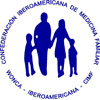Capacitation of a rural FHS team Cássia dos Coqueiros in family approach
Resumo
Introdução: Translate the integrality of the Brazilian Health Care Policy is still a challenge. The Family Health Strategy (FHS) has as an ideal to ensure full access and quality of care to all of its users, taking into account their individual needs. Enable and stimulate the FHS teams to use tools and techniques in family approach can broad the perception of these professionals about the population’s health.
Objetivos: Enable the FHS team to work in the family approach using instruments such as genogram, eco-map and life cycles, and promote systemic and theoretical discussion of the families.
Metodologia ou descrição da experiência: The training occurred in Cassia dos Coqueiros, a 2,000 inhabitants city, being 48% in rural areas, and consisted of three meetings, using active methodologies for teaching/learning and group dynamics, led by a resident of Family Medicine, with a total of ten participants from the FHS staff (doctor, nurse and community workers).
In the first meeting, a discussion was made about concepts and different conformations of family in a systemic approach. Instruments and practical applications of family approach (genogram and eco-map) were presented at the second meeting, and at the third, the cycles of life and its different demands and tasks were discussed, besides the evaluation of the workshops.
Resultados: The team demonstrated receptivity to training, with active participation in group activities and discussions, and all of the participants assessed the workshops positively.
Among the participants, only 10% mastered the techniques and instruments of family approach. Although the topic has been unheard for most of the team prior to the workshops, all of the participants proposed to apply these instruments in families for which they are responsible. The tools and the discussion of family approach were evaluated as useful for daily practice of FHS professionals from Cássia dos Coqueiros and its population, including rural.
Conclusões ou hipóteses: The continuing education of FHS teams can contribute to a broader view of the citizens, and their family relationships. This experience motivated the staff of this town to a better understanding of family dynamics, social determinants and health problems. Furthermore, it is believed that the systemic view of family and community can qualify the process for the integrality in a health care system.
Palavras-chave
Texto completo:
PDF (English)Apontamentos
- Não há apontamentos.
Este periódico é de responsabilidade das associações:
Apoio institucional:







